Thursday 21 March (14:00) passholders only CCA Cinema // 1h20m // 15+
Friday 22 March (13:15) GFT Cinema 3 // 1h45m // 15+
Saturday 23 March (18:30) GFT Cinema 3 // 1h45m // 15+
Personal and collective memory and imagination, traces of what was and seeds of how things could be. Our third Bill Douglas Award programme spends time lingering on the past but also gently simmers with possibility. Nothing But Shadows, abouta woman’s dealings with mortality and grief, dips into a subtle magical realism with an enigmatic lead performance, while Pacific Club, a favourite on 2023’s festival circuit, reflects on a once crucial club space for Paris’s marginalised Arab community, its testimonies blanketed by the haze of twilight hours and interspersed by performance. More forgotten history resurfaces in Chasing the Sun: El Shatt, which creates an intriguing sense of place and reflects on a little-know migration past through archive and contemporary footage. GSFF alumnus Leonardo Pirondi returns, this time in collaboration with Zazie Ray-Trapido, with another tickling and imaginative piece of ‘experimental docufiction’ in When We Encounter the World. Finally, Wander to Wonder might just be our favourite puppet stop-motion black comedy since The Burden (2017) – incredible craft, atmosphere and invention all in one.
Tickets available here.
Nothing But Shadows
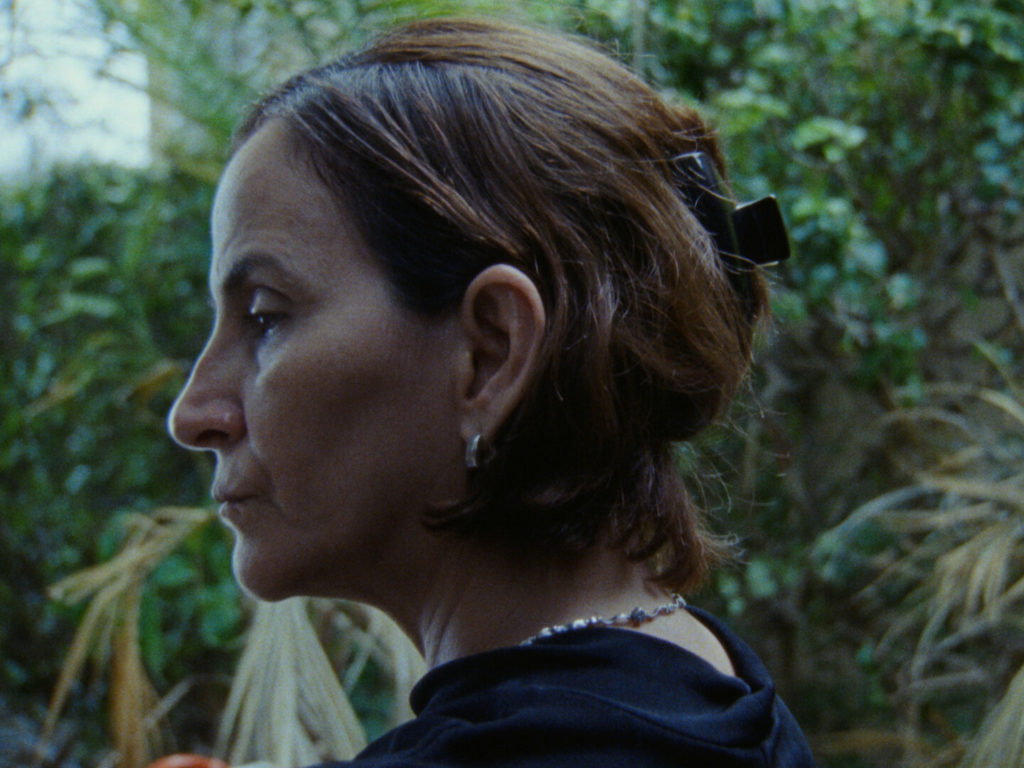
SOMBRAS NADA MÁS
Colombia, United States // 2023 // 18 mins
On the anniversary of Marisol’s husband’s death, her neighbour’s construction work uncovers human remains. The coincidence of this discovery terrorises Marisol, a superstitious visionary, forcing her to face her own mortality.
On the anniversary of her husband’s death, Marisol’s neighbour, Nilda – also a widower – dies of a broken heart. Soon, construction workers find human remains on another neighbour’s land. Now the only widow in the neighbourhood, Marisol’s proximity to death prompts her to fear her own mortality. As she seeks answers in coffee grounds and television psychics (evoking the legendary Walter Mercado), Marisol becomes a beacon for the neighbourhood women, a wise woman around whom they can gather to share their own fears and anxieties, hoping that the spectre of death won’t visit their door. ‘Death is heavy,’ repeats Marisol’s friend throughout the film, and there’s a heaviness that clings to Marisol throughout. She’s funny, quick and witty as she gossips on the phone, inquires through windows and fences as to the neighbourhood goings on, and allusions to Marisol’s life with her husband suggest she might be better off without him. When Flor – who’s land the human remains were found on – suggests that shadows move through her house, there’s a sense that the same might be true for Marisol. Death has long been a key theme in the shorts space, and never more than in the post-Covid world, as so many of us have faced mortality on a grand scale. The focus on superstition and the esoteric, maybe even supernatural, brings a new perspective to the theme, and feels familiar: we all know someone – some of us are someone – who got deeply into astrology or crystals or tarot cards during lockdown.
Michael Lee Richardson
Pacific Club
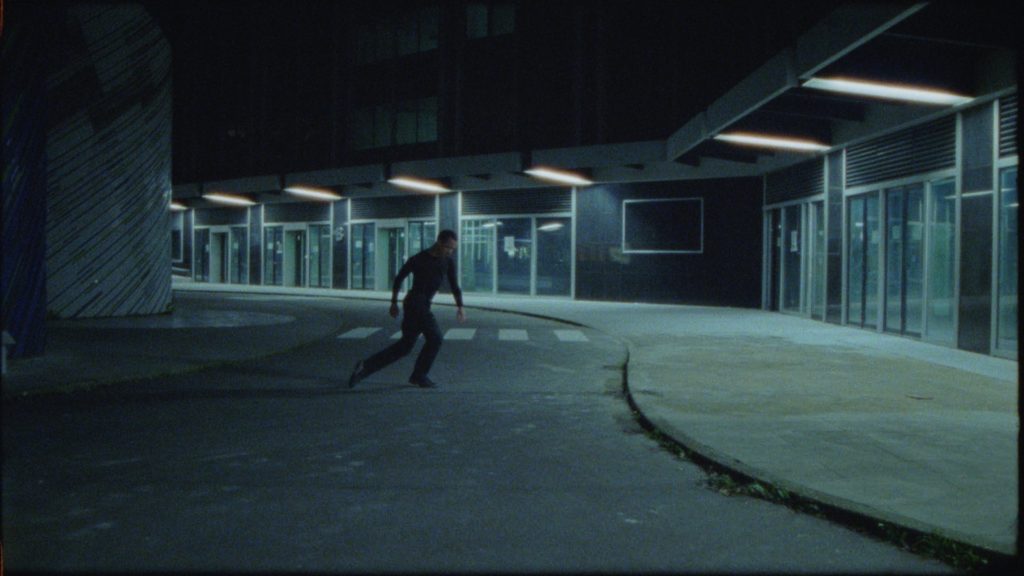
France, Qatar // 2023 // 17 mins
In 1979, the Pacific Club was opened in the basement of La Défense – the business district of Paris. It was the first nightclub for Arabs from the suburbs; a parallel world of dance, sweat, young loves, and one-night utopias.
Pacific Club hasn’t really left my body since the first time I saw it, some time in spring 2023. Though its blend of formal approaches and hazy break of dawn setting make for an alluring watch, its power lies in the hard-to-describe. In his engagement with his subject Azedine and his mission to make visible a small but vital piece of community history, Valentin Noujaïm demonstrates a depth of sincerity and care, and a gesture of what film can mean outside of traditional exhibition spaces. The Pacific Club was a once crucial space for Paris’s marginalised Arab club crowd, buried deep under the capitalist urban landscapes of La Défense. While it’s long gone and forgotten by most, Noujaïm here creates a cinematic shrine evoking love, loss and solidarity, while not shying away from the space’s complexities. Expressions of nostalgia contain delicate layers for those who have been historically oppressed and discriminated against, yet this film allows for exactly that, for a sense of yearning without ever losing sight of the political realities that necessitated the Pacific Club in the first place. It’s the first work in Noujaïm’s La Défense trilogy. The next instalment, To Exist Under Permanent Suspicion, premiered in January in Rotterdam. Make sure to keep an eye out for it.
Sanne Jehoul
Chasing the Sun: El Shatt
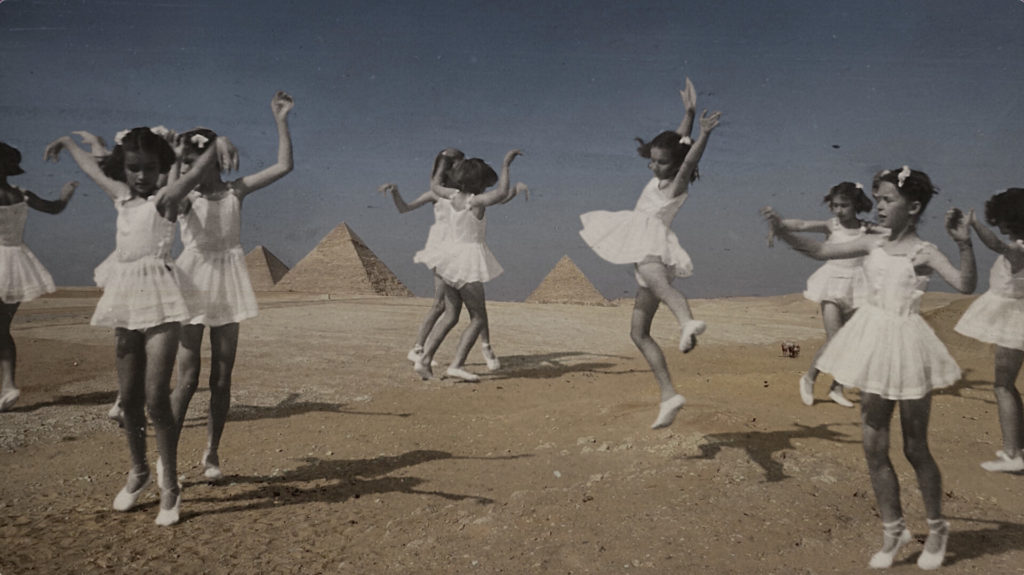
DOHVATITI SUNCE: EL SHATT
Croatia // 2023 // 20 mins
El Shatt was the largest refugee camp in the Sinai desert in Egypt during the Second World War. This transtemporal filmic journey reconstructs a fragmented memory of unknown history about migration in the Mediterranean.
What history lies beneath the desert sands? During World War Two, Egypt’s Sinai desert was home to the largely forgotten El Shatt refugee camp, hosting displaced peoples from the Dalmatian coast. In its presentation of this forgotten history, Chasing the Sun: El Shatt, tethers past and present together through archival and contemporary footage of the desert to construct a fragmented memory of the camp. Director Ana Bilankov presents the desert and its vast expanses as a canvas for reflection. Here the sand is our main character, just as much as the past and present children who play on its surface. The film allows for quiet contemplation on the blank spaces left in our knowledge and memory. Throughout the film, these spaces are deliberately left untouched. As the past haunts the present, and camerawork disorientates our collective memory, Chasing the Sun embraces the notion that the reconstruction of history relies not only on the details preserved, but also in the poignancy of the spaces left deliberately blank.
Nancy Holt
When We Encounter the World
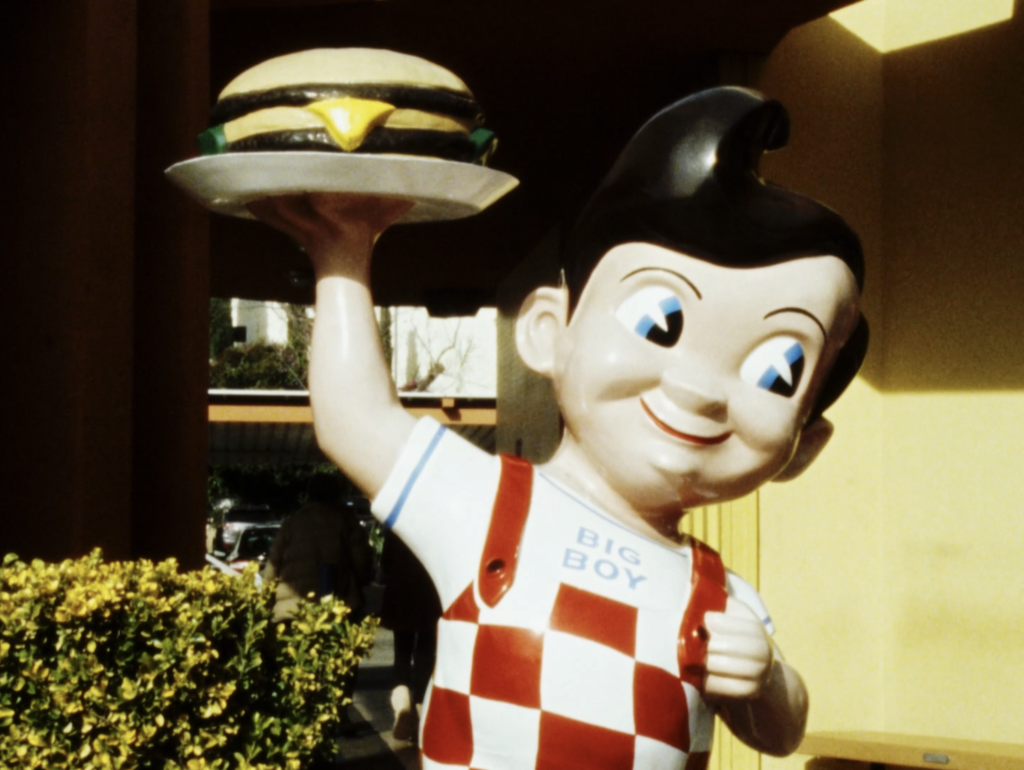
Portugal, United States // 2023 // 11 mins
In 1934 an experiment by an amateurscientist couple began. The Automeris Project placed a group of young children in an enclosed forest, leaving them to fend for themselves. On return visits, the couple presented self-made films depicting the outside world.
A managed colony of children are brought up in isolation from the modernising world of the 1930s, their only experience of it mediated by a diet of experimental montage film. Archival footage mixes with reconstructions of these impressionistic city symphonies, created to study the effects on their social psyche. If immediately afterwards you are seized with curiosity to learn more, you’ll find the internet no help: no accessible record of the so-called Automeris project exists. With When We Encounter The World, Leonardo Pirondi continues his exploration of the nature of reality and perception this time alongside co-director Zazie-Ray Trapido, whose unreliable narration channels the voice of scientific authority. It conjures something akin to a speculative documentary, a generic decision that further unsettles our sense of real and unreal. Even the name of the purported project, Automeris, comes from a species of moth distinctive for the eye-mimicking pattern of its wings. It suggests a hall-of-mirrors where we can be just as deceived by the eyes of the other as much as our own. But for all its social and metaphysical concerns, the film confidently evades dryness. Its hyper-Eisensteinian conceit is executed with a heavy dose of hauntological humour, and lush visuals which glow with obvious affection for the cinematic language it inherits.
Oisín Kealy
Wander to Wonder
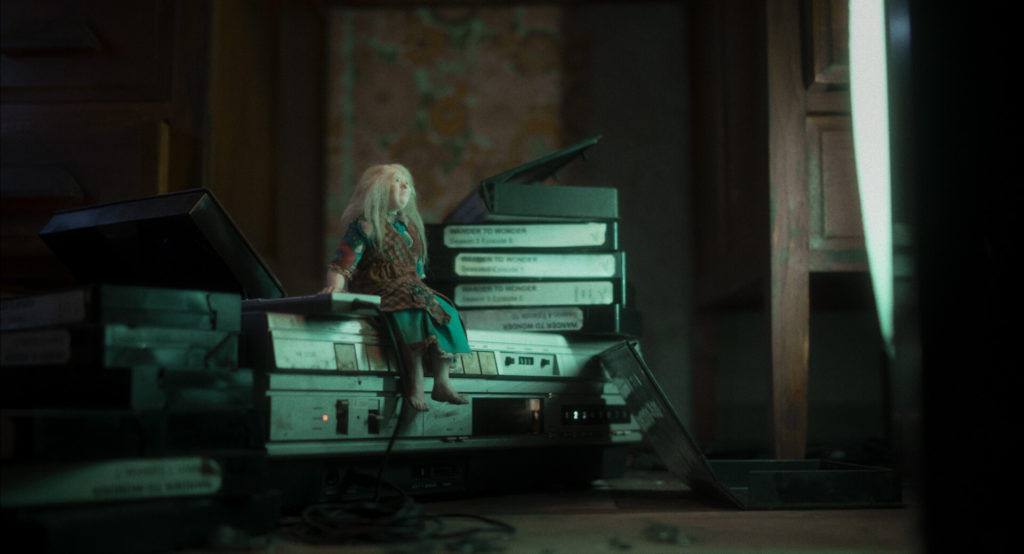
The Netherlands // 2023 // 14 mins
Mary, Billybud and Fumbleton are three miniature actors who perform in a 1980s kids’ TV series. When the creator of the series dies, they are left alone in the studio to make increasingly strange episodes for their fans.
Take my hand and let’s wander to wonder! Mary, Billybud and Fumbleto imagine a future without their mortal creator, concealed somewhere between dead flies, pickles and television static. In their home videos, he lives on, capturing a hasty departure of adolescence and that which they cannot let go. Suffering their own survival like a messy puberty, the three miniature beings learn their final lesson; to grieve, and discover their own impermanence in a post-show world with no hand to hold on to. Nina Gantz’s dingy folktale tows the line between the wonder of childhood and a daunting reality of self-preservation. Through the lens of 80s children’s television, Gantz frames memories of lost loved ones as those we hold most dear; in rose-tinted bias, spurring the creation of the ultimate public information film for grief.
Heather Bradshaw